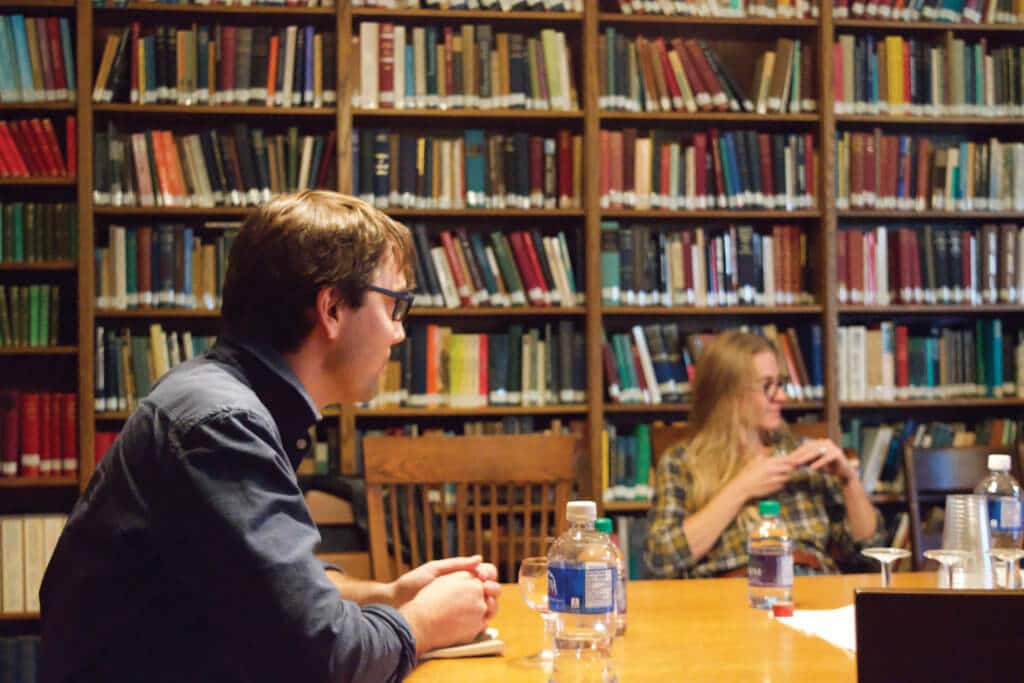Mount Allison’s Philosophy and English departments co-host thought-provoking poetry reading

Last Thursday in Hart Hall, an intimate gathering with poets Darren Bifford and Amanda Jernigan quickly turned into a discussion on the awkwardness of poetry readings and the difference between passive and active reading of poetry.
The poetry reading was co-hosted by Mount Allison’s philosophy and English departments. This decision was made because “Some accounts of philosophy say it leans more towards poetry than the natural sciences,” according to Robbie Moser, a professor in the philosophy department. “We’re trying to explore a variety of different areas.”
Alumna Amanda Jernigan read first, selecting several works from her book of poetry The Temple, all of which focused on the juxtaposition of birth and death, as well as themes of parenthood, mortality and childhood. Inspired by a religious text, she said, “I was moved by this encounter between Mary, the young mother, who’s just embarked on this adventure of life giving and new creation, and Simeon [the old man], who’s ready to die and [has] had enough.” With this in mind, she wrote a series of poems with two voices to accompany a newly written cantata by American composer Zachary Wadsworth. She recited several of these poems for the room.
Darren Bifford read next from his latest book, False Spring. Before reading, he spoke of his apprehension of poetry readings. “I, myself, am actually quite skeptical of poetry readings; the relationship between listener and the reader is one that I’m a little distrustful of or impatient with,” he said. “People come to poetry readings and there’s this sort of automatic passivity that accords. It’s an uncomfortable space, sometimes.”
As Bifford finished reading, discussion broke out over the difference between reading poetry to oneself, where one may reread a line to truly grasp the meaning, and reading to a crowd. When reading for others, Bifford says, “There’s a certain kind of cultural force to keep on going,” which takes away the chance to reread certain lines.
Jernigan noted her love of reading out loud while admitting the discomfort of many poetry readings. “Poetry is high density, so one doesn’t want too much of it,” she explained. “And I think it’s great to hear things again. I would love it if every poetry reading had the chance to read everything again.”
Following Jernigan’s prompt, each poet chose one poem for the other to reread for the room. Whether the second reading led to deeper clarity of the poem in the audience’s mind is for them to answer.
Speaking to Jernigan afterwards on the importance of poetry, she said, “There seems to be a thing in human beings that makes us turn to poetry when things get intense: when you lose somebody, when you love somebody.” She continued, “If you’ve decided you don’t like poetry on the strength of reading a handful of poems, you might consider going back and giving it another chance. Try something else.”
“Their work is rich, deep and speaks out to people in a time of moral complexity and moral grayness, because something very sincere and something very real comes through,” Moser said of the two poets.
The philosophy and English departments will team up again to host another poetry reading towards the end of November.





